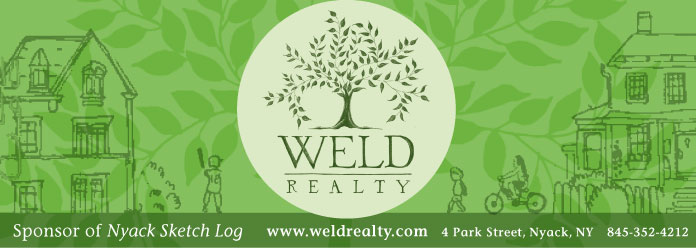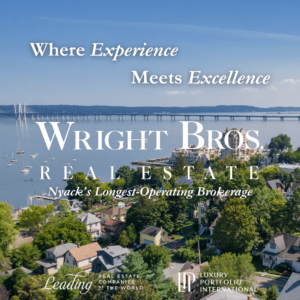 by Bill Batson
by Bill Batson
On Sunday July 25th 5 pm (on zoom)– Culinary Historian Lavada Nahon uses food, utensils and customs to explore the day-to-day life of early Lower Hudson Valley farmers and their workers, many of whom were enslaved, with special attention to what they
were eating and drinking, who was preparing it and more.
Sunday night suppers will be prepared for take-out at Hudson Market on Main,
pick-up from 1 – 4pm…the offering is courtesy of Lavada, based on recipes from
historic cookbooks published in that era.
The Menu: Spinach Tart – Potato Salad with farm fixings – pickled vegetables
Pound Cake and Ginger Cookies.
Thanks to the Historical Society of the Nyacks and Hudson Market on Main, two people can enjoy this meaningful meal and lecture for $55. Read more to learn how to register before the July 20 deadline.
 Labada Nahon examines cuisine to understand lives and cultures of the Indigenous, Dutch, English, enslaved Africans, French, and Germans, in colonial America.
Labada Nahon examines cuisine to understand lives and cultures of the Indigenous, Dutch, English, enslaved Africans, French, and Germans, in colonial America.
“My path on this journey started when I was young. My mother always said she had three daughters, one to cook, one to clean, and one to sew. I am the cook,” she says of her early foray into food.
“It wasn’t an occasional thing, but a part of my daily existence. I am also an avid reader, very much the geek who lived in the library, reading novels and stories, then the books that took me to the places those stories were set, and other books about the cultures, then the cookbooks. Since then I’ve read even more books, cooked more, studied more, and at some point began sharing all I learned.”
Historical Society of the Nyacks puts culinary history on the menu with help from Hudson Market on Main

A special take-out meal chosen by Nahon to accompany the presentation is based on recipes from historic cookbooks. The meal will be prepared by Hudson Market on Main at 5 N. Broadway for pick-up between 1p and 4p.
The special historic menu:
Spinach Tart
Potato Salad with farm fixings
Pickled vegetables
Pound Cake and Ginger Cookies
Organizers encourage you to embellish your supper with other accompaniments from the same era.
Go farm to table with local garden vegetables and fruits. Add smoked fish and shellfish. There are lots of ways to dress up the pound cake with berries and whipped cream.
Popular drinks to accompany dinner include hard cider, heirloom craft beers, Madeira Rosewater Wine, Claret (Burgundy).
I will moderate a discussion with Nahon at 5p during or just after your meaningful meal.
A scholar who brings the taste of history to life: Lavada Nahon

Lavada Nahon is the interpreter of African American history for the New York State Office of Parks, Recreation, and Historic Preservation – Bureau of Historic Sites; and a culinary historian focused on the 17th through 19th century era in the mid-Atlantic region, with an emphasis on the work of enslaved cooks in the homes of the elite class.
She is also a generalist in African American history in the 19th through 20th century. She has over 18 years of public history experience working with a variety of historic sites, societies, and museums across the tri-state region.
Lavada has developed educational programs, after-school programs, lectures and tours, period presentations and historic dinners for sites ranging from the New York Historical Society, Albany Institute of Art and History, Dyckman Farmhouse Museum, Johnson Hall, and many more. She worked as a museum associate and educator for Historic Hudson Valley for 12 years at Van Cortlandt Manor and Philipsburg Manor Upper Mills, and as a production coordinator for their special events team. Her mission is to bring history to life by giving presence to the Africans and people of African descent enslaved and free in the landmass that was once New Netherland/New York in whatever way possible. For more information, please visit lavadanahon.com.
Think of this short interview as an appetizer: an amuse-bouche!
Register here while there is still room for at the virtual table, with real food. Read more to learn how Nahon helps the public literally taste history.
What are some of the foods, cooking utensils, tableware that were imported to the colonies and where were they from?
Most people think of the colonial period as being the same throughout. It shifts as the colonies grow in wealth. The foods, utensils and tableware shift along with everything else. There is an early, middle, and late period, and like the colonists themselves things come from all over the world.
Did all demographics drink alcohol with the same frequency/accessibility (farmers, the enslaved, free Blacks, women, Native Americans) in the early 1800s?
No, different demographics drink different things. Although alcohol is available to all, it ranges from beer to imported wines.
What do you enjoy the most about being a culinary historian?
There are so many things I enjoy about being a culinary historian. Foodways are an easy gateway into any culture or time period no matter the time period. It is seeing how different cultures in different time periods use the same ingredients in different ways. Plus there is also all the lovely dishes, and more!
What cuisine myth (circa 1800) are you passionate to debunk?
That food was boring and simple. They ate a wider variety of things that we do today and depending upon the social class far from simple dishes.
You write about being a real book worm in your youth. Is there a book that stands out for you that influenced your life?
Cookbooks and encyclopedias, especially cultural encyclopedias of all kinds
I still read them, especially cookbooks, more like books that I use to create food from.
Now that Phillips Manor (in Yonkers) is slated to become the African American History locale for New York State, do you have a program or event in mind you hope will be presented there?
Philipse Manor in Yonkers will not be an African American history museum. It will however house an exhibit which covers four generations of New Netherland and New York history through the lives of the Philipse family which will bring recent research to the general public. I am looking forward to people seeing the multicultural world of New York’s colonial period, where the three major cultural groups, Native, European, and African will each have a place.
So much of what we learned in school, no matter when we attended, was based on the Colonial Revival Movement, not colonial history. There is so much history people simply do not know, and we cannot move forward as a country in a positive way leaning on information that in many cases is simply wrong. The exhibit will be a great steppingstone to correcting a lot of misinformation, and a gateway for further individual exploration.
Click here to register before July 20!
Learn from Cuisine Historian Lavada Nahon about the day-to-day life of the farmers and their workers of the Lower Hudson Valley, many of whom were enslaved, with special attention to what they were eating and drinking, who was preparing it, and more.
Zoom link only………………………$25
Local History Supporter………..Dinner for 2 (+zoom link) $55
Local History Lover…………………Dinner for 4 (+zoom link) $100
Local History Patron……………….Dinner for 4 (+zoom link) $175
Local History Benefactor……….Dinner for 4 (+zoom link) $250
An activist, artist and writer, Bill Batson lives in Nyack, NY. Nyack Sketch Log: “Culinary Scholar Lets Public Taste History“ © 2021. Bill Batson. Visit billbatsonarts.com to see more.









